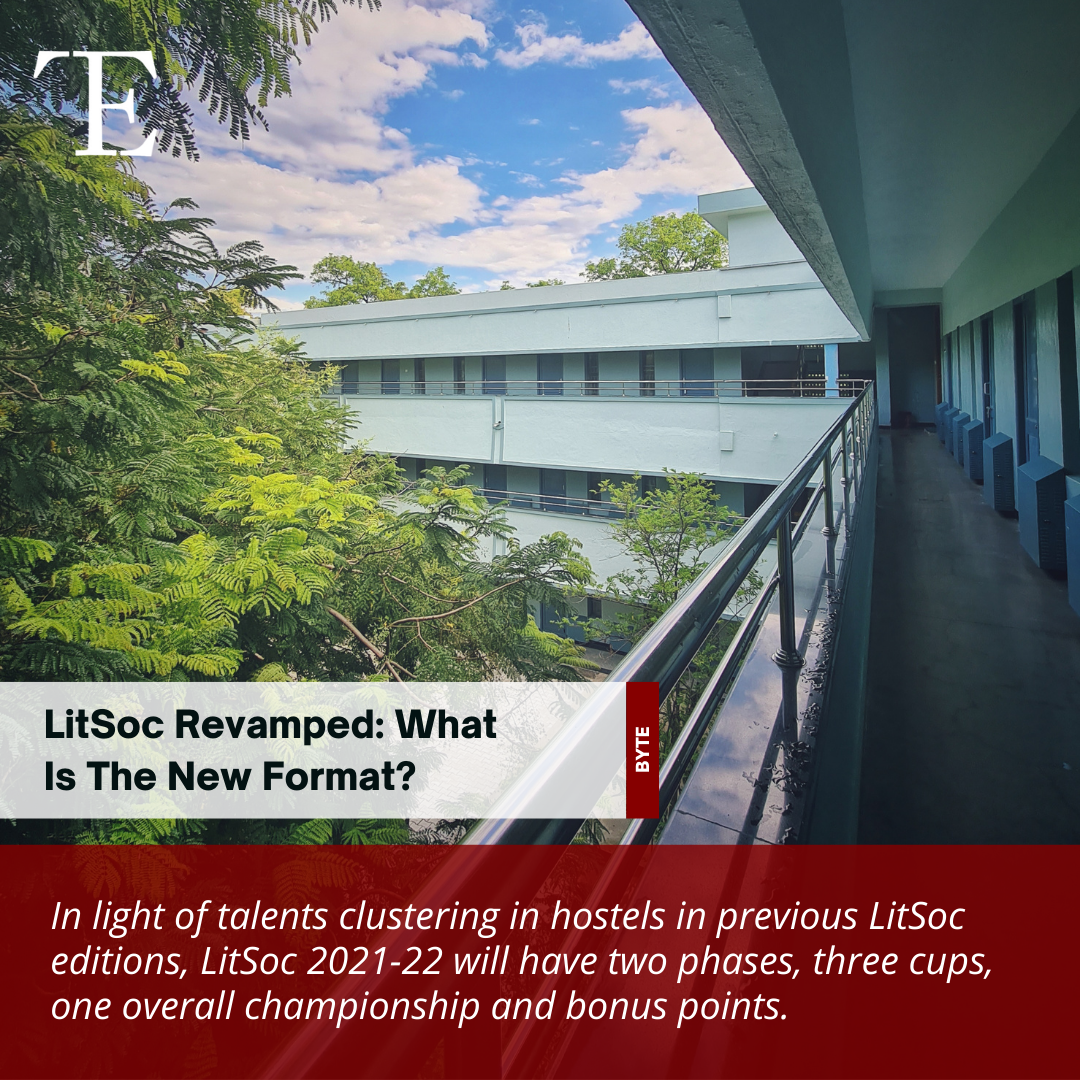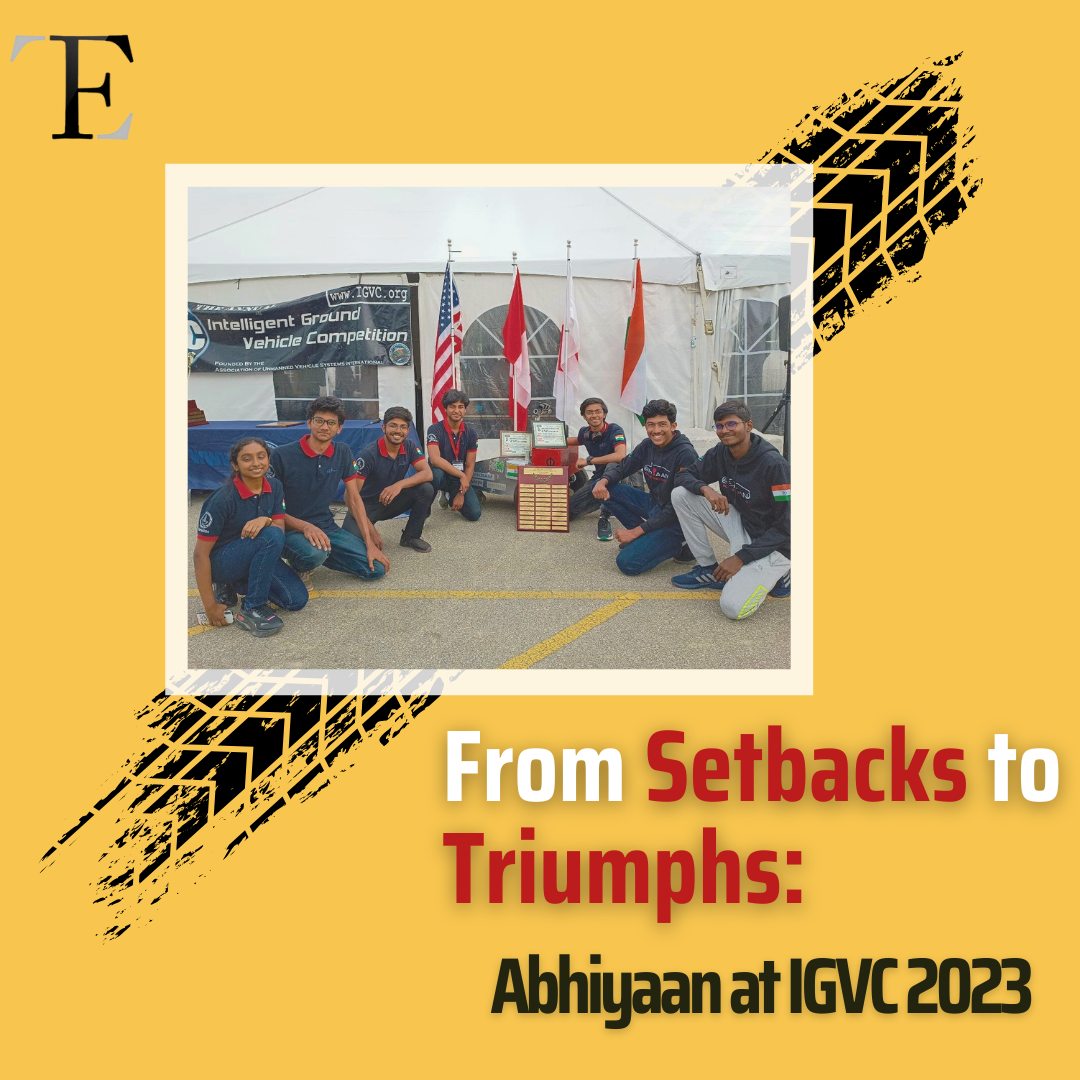IIT Madras extended its consistent run as the top institute in the nation in the rankings released by NIRF for 2023. With a score of 86.69, we topped the overall ranking for the fifth consecutive year, and the Engineering category for the eighth consecutive time. We ranked second in Research and in Innovation, preceded by IISc and IIT Kanpur respectively. The detailed ranking released by NIRF can be found here.
But what does this framework really mean, and is it really indicative of the state of education in India’s top institutes today?
What is NIRF?
The National Institutional Ranking Framework (NIRF) was approved by the MHRD in 2015 and has been ranking institutes since. This year, a total of 5,543 unique institutions were considered for ranking under the ‘Overall’ category – a significant increase in comparison to previous years.
Despite a top ranking, we saw a fall in our score from last year’s numbers. While there was an increase in the ‘Outreach and Inclusivity’ and ‘Perception’ scores, the parameters `Research and Professional Practices’ as well as ‘Graduation Outreach’ saw a decline. The score for ‘Teaching, Learning, and Resources’’ remained more or less the same.
This was the first year back on campus, and we witnessed IIT Madras achieve several milestones as we worked our way back to normalcy.
A look at the last year for IITM
Research and Innovation
Last year saw three IITM professors being appointed as the directors of IIT Tirupati, IIT Palakkad, and IIT Dhanbad respectively. The ‘VinFuture Prize’, one of the largest annual global prizes given to innovators from developing countries, was awarded to Prof. Thalappil Pradeep from the Department of Chemistry.
We saw India’s first 5G call made on a trial network set up at IIT Madras using indigenously developed technology. Researchers from the institute developed an artificial intelligence tool, PIVOT, to predict cancer-causing gene mutations in an individual. IITM was awarded the ‘National Intellectual Property Awards 2021 and 2022’ by the Government of India as the top Indian Academic Institution in patent filing, grants, and commercialization.
Exploring New Avenues
In August 2022, the BSc in programming and data science was upgraded to allow students an option for a four-year BS Degree in Data Science and Applications. Later in the year, a new program in Electronic System Design Manufacturing was launched to take this initiative further.
The Wharton-QS Reimagine Education Awards, also known as the ‘Oscars of Education’, gave significant recognition to our institute. A Silver in the best online programme award was achieved by IIT Madras’ BS in Data Science. NPTEL, in partnership with IISc Bangalore, won a Gold in the ‘Lifelong Learning Award’.
IITM has launched 15 Centres of Excellence for undertaking research in next-generation technologies such as Construction, Healthcare and Assistive Technologies, the Marine sector, Sports, Cancer Genomics, and Energy. The Institute recently launched the Department of Medical Sciences and Technology, which will be offering four programmes including a BS in Medical Sciences and Engineering to begin with.
Cultivating an Innovative Ecosystem
Home to India’s first university-based research park – IIT Madras Research Park – IITM has gained recognition for promoting the collaboration of scholars with state-of-the-art technology for producing products and services to meet real-time needs. IITMRP has incubated 200+ startups, showing the institute’s focus on integrating research with commercialization.
IITM was awarded the ‘Best Patents Portfolio Academics Institution Award’ by the Confederation of Indian Industry. In 2021, 120 IITM patents were filed in India, and another 68 abroad.
This energy is also reflected in the success and recognition that IITM student teams across diverse domains have gained. Teams like Avishkar Hyperloop and Raftar Formula Racing have gained national recognition for their efforts. Agnirath, working on solar vehicles, is the latest addition to our host of student tech teams competing in international competitions.
Building Better
We saw the 8-storey Swarnamukhi Hostel – the 6th women’s hostel on campus – being inaugurated, as well as the launch of the Sudha and Shankar Innovation Hub, a new building inspiring innovation and entrepreneurial activities, funded by alumni, government contributions, and the institute. It has now become home to various projects under the Centre for Innovation (CFI) along with multiple startups under Nirmaan, our pre-incubation cell.
Fests, Summits, and More
In collaboration with the Government of India, IIT Madras and Banaras Hindu University were selected as the knowledge partners for ‘Kashi Tamil Sangamam’, a month-long program which aimed at bringing to light the social and cultural relationships between Kashi and Tamil Nadu. Another major collaboration this year was the G20 University Connect, organised by the Ministry of External Affairs.
Our aquatics team, ‘Madras Sharks’, retained their title as the Inter IIT Aquatics Champions in the 36th Inter-IIT Aquatics Meet, with a total medal tally of 17 medals. The IITM Contingent also secured the Men’s General Championship after 11 years and placed 4th overall at the Inter IIT Sports Meet, held at IIT Delhi and IIT Roorkee in December.
Saarang and Shaastra were conducted on-campus after two long years. The 14th edition of the Open House, the flagship event of the Centre of Innovation, took place on 12th March, with 70+ exhibits by 13 clubs and 6 competition teams. April saw IIT Madras hosting the eighth edition of its annual ‘E-Summit’, featuring 800 start-ups and more than 5000 students across India.
Shortcomings
While NIRF has made some strides towards improving transparency and accountability, it falls short in several crucial areas, raising concerns about its overall effectiveness and reliability.
For one, the framework places too much emphasis on perception and branding. Stakeholders such as employers, academics, and the general public rank institutions based on their perception of reputation. While reputation is undoubtedly important, this approach tends to favour well-established and older institutions, potentially overlooking newer institutions that may offer innovative and quality education.
Secondly, while IITM has had numerous moments of pride over the last year, it’s also had a fair share of obstacles and negative media spotlight. A string of suicide cases from August 2022 to April 2023 devastated the student community and revealed a toxic mix of pressure and official apathy, in what was the highest ever incidence of such cases across the IITs. While significant measures have been taken to set up adequate counselling and wellness centres for the campus body, we have a long way to go in recognising the real and persistent threats to mental well-being that students, especially in the IITs, face. NIRF’s current framework fails to assess factors such as student satisfaction surveys. These aspects are crucial in evaluating the overall quality of education and the student experience.
While we have some highly qualified and experienced professors at IITM, a few lack the necessary expertise to teach modern and relevant courses. This has resulted in a lack of research output and a low citation rate for Indian universities in global rankings. We barely have any foreign faculty at IITM. This affects the internationalisation of the students and the citation references in research work, and, more importantly, the global collaboration that we all desire.
Indian universities face a tremendous lack of endowment culture. In the US and Europe, alumni give back to their university in the form of grants and donations. This money is harvested in hedge funds, startups and other investment avenues to make it constantly grow. Harvard alone has above $50 billion in its endowments, Stanford above $30 billion. In contrast, while the IITs, IIMs and NITs do receive more than 50% of the government’s educational spending, we are a long way from our counterparts abroad. However, we are hopeful for change, and Nandan Nilekani’s recent 350 crore donation to his alma mater, IIT Bombay, serves as an example of what India’s top universities deserve from their alumni.
Recording a growth of 76% in the funding raised from its alumni, corporate houses, and donors, IIT Madras witnessed net donations of INR 231 crores in the financial year 2022-23. While there is still a long journey ahead, IITM has laid a foundation to build upon.
What comes next?
The relevance and shortcomings of NIRF rankings have been the subjects of ongoing debate for years. However, as the director, Professor Kamakoti, rightly stated: it is the framework, more than the ranking, that serves our institute in continuously aspiring to become better and serve the technological and academic needs of the nations. The institute’s future policies will play a crucial role in fulfilling the Director’s ambition to achieve a top 100 global ranking by the year 2025. This reward is for the efforts that students, staff, and faculty have shown over the past year, but it is also a motivation to continue striving for excellence in the coming years.
Edited by Ankita Murthy
Design by Yash Suryawanshi




